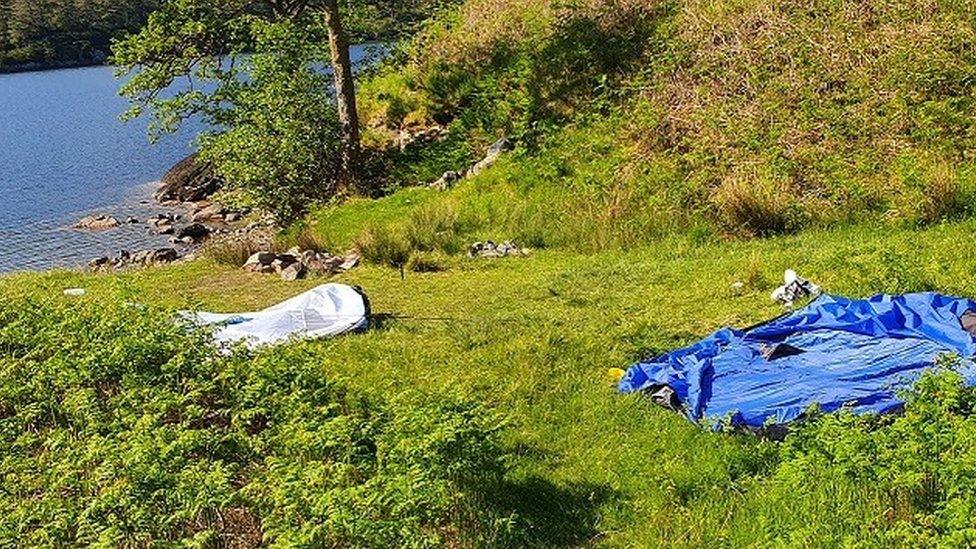Coronavirus: 'Uncontrolled camping a public health risk'
- Published

An abandoned camp found in Lochaber in June
Many areas of the Highlands have been "adversely affected by a huge increase in uncontrolled camping", the region's local authority has said.
Rubbish, human waste and fire pits have been found at locations, including the Cairngorms, Lochaber and Glen Coe.
Highland councillors are warning of the potential public health risk.
They said even when official campsites reopened after being closed due to the coronavirus pandemic, demand would outstrip the availability of pitches.
A motion by a group of councillors, calling for Scottish government support for initiatives to tackle the problem, has been backed by the full council.
To reduce the public health risk, the councillors have suggested increased waste collections, better traffic management, restrictions on alcohol consumption and financial support for beach or countryside wardens, temporary toilet and handwashing facilities.
'Right answers'
Ben Thompson, a councillor for Caol and Mallaig, said: "I've had some very encouraging feedback from the government so there is genuinely a desire there to deal with this quickly.
"It is about getting the right answers in place and putting the resources in place."
He said tackling the camping problem should be part of the response to Covid-19.
Mr Thompson said budgetary constraints faced by the government and Highland Council should not be a barrier to funding solutions.
Dirty camping
Perth and Kinross Council has sought to deal with similar issues in its area.
It has teamed up with Police Scotland, the Scottish Fire and Rescue and local communities to promote responsible behaviour.
Mountaineering Scotland has dubbed the problem as "dirty camping" to differentiate it from wild camping.
Wild camping usually involves camping in remote areas but always "leaving no trace", meaning using stoves and not lighting camp fires, and carefully burying or taking home human waste for disposal.
The organisation has launched a Considerate Camper campaign and has provided advice and a checklist on its website, external.

